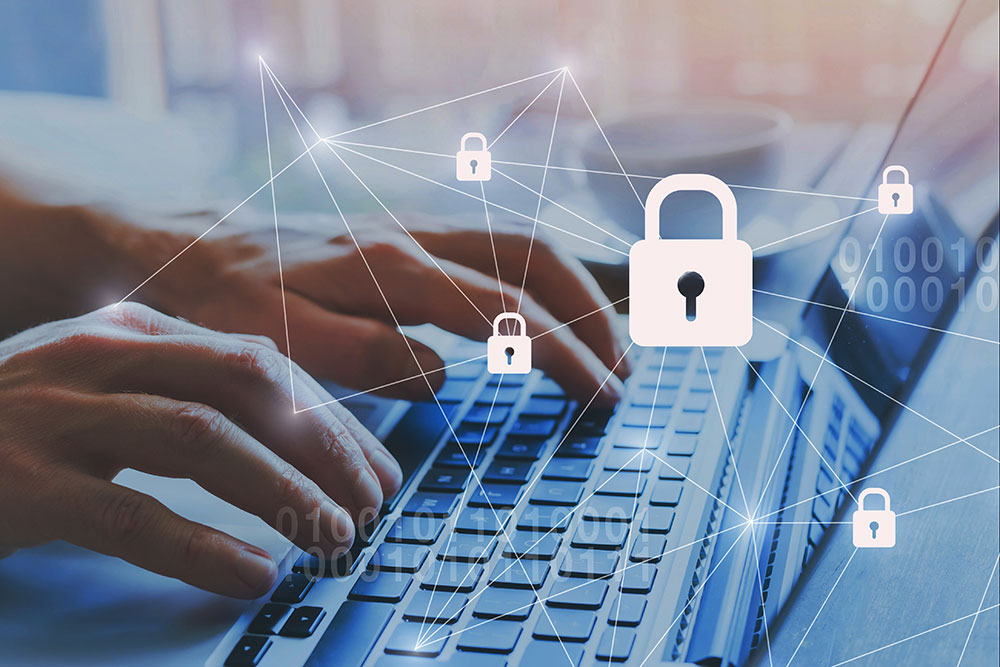
How can Coronavirus and cybersecurity influence the workspace?
A quick transition to remote work has made IT technicians much more vigilant than they were with regular office work.
Many companies, still concerned about the current health situation created by the Covid-19 pandemic, continue to divide their workers among those who work from home and those who are located in the workplace more regularly. But this change from the traditional model can also expose these organizations to cyberattacks if precautions are not taken.
Companies ranging from tech giants to startups and SMEs keep on opting for a hybrid working formula. As a case in point, we see how in Spain telework is a trend that currently marks 34% of the activity in combination with the day in the work center. But if you look further, Microsoft, Alphabet, Facebook and Apple still urge their employees to work from home, if their daily tasks allow it. Several tech companies, including Google and Cisco, keep their collaboration tools for free, as companies around the world have implemented home work policies, and physical conferences are still canceled.
“We have noticed how remote work not only responded to a need of the moment, but is here to stay in combination with face-to-face work,” says Gran Via Business & Meeting Center, a business center located in Barcelona, pointing out how this new level of workplace flexibility tests the cybersecurity strategy of companies.
The experience and daily work in this workspace are aligned with the latest computer attacks, believing that these practices are best defended in a workspace center. “When workers start connecting from coffee shops or public spaces, they can unknowingly put sensitive information at risk; those who visit other workspaces to change the landscape can leave their devices unattended,” they argue about how workspace computer systems pose a double security barrier against potential network attacks.
Things to keep in mind with telework
“At home there is a tendency to let the guard down as people feel safer, so any bad computer security habit from home can result in possible access roads for cybercriminals,” explains the Gran Via BC team as the biggest challenge is to positively remember and reinforce good security habits, something that is strengthened with IT and professional systems available to users of professional workspaces with a good service infrastructure.
“Employees that work from home may not have the same protective tools as at work. That’s why it’s key to have a good security strategy and very defined protocols,” adds Gran Via BC.
Employees may also lose their credentials or accidentally share them over a public Wi-Fi connection. If an attacker captures them and logs in to an enterprise application, it will be difficult for security teams to determine what the inappropriate access has been. Therefore, once again, it is paramount to be able to access secure networks with firewalls or filters that prevent such accesses.
What measures need to be taken to protect employees in telework?
“We have to be more proactive about prevention. That’s why it is very important that all equipment and devices are updated with the latest versions available,” points out the Barcelona workspace. They advise ICT departments to generate training materials designed to let workers know what to do and what they can wait if they experience a security incident. If they do, employees would need to know how to immediately report any security threats and concerns they may have.
Another aspect they mention is multi-factor authentication, based on a confirmation of the user’s security code with their phone or other device, intended for users accessing sensitive business services over the network, such as remote access solutions.
Gran Via BC emphasizes that companies that are adapting to remote work would have to follow internal communication strategies in order to be able to be on notice of any incident quickly and effectively. It is therefore essential to offer a good pace of formations to workers so that they can recognize the threats that may affect their emails or mobile phones. “In addition to technology, people are really important, and are the first line of defense that has to be taken care of the most,” they conclude.
